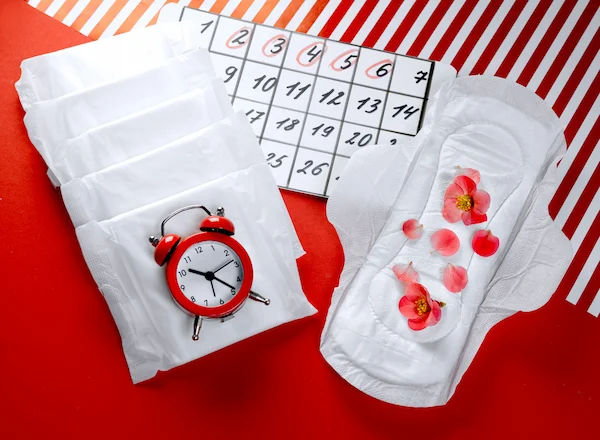How to Reduce Refractory Period?
Find out ways to cut the refractory period with lifestyle changes, medicine, and emerging research. Learn the important factors, overall risks, and customised options for recovery.

Written by
Last updated on 13th Jan, 2026
The refractory period is a natural phase of recovery after sexual activity that lasts for different time intervals depending on the person. While it is influenced by factors like age, hormones, and psychological state, many people try to reduce it to increase intimacy and satisfaction. There may be a combination of lifestyle changes, medical interventions, and emerging scientific advances that will help optimise the recovery time. This guide will discuss the refractory period in detail, its physiological mechanisms, the factors that influence it, natural and medical solutions, potential risks, and future innovations in sexual health.
Factors Influencing the Refractory Period
The duration of the refractory period differs from one person to another, and numerous factors influence it. Some of them are:
1. Hormonal Regulation: Testosterone, dopamine, and oxytocin hormones are all important in determining the length of the refractory period. Shortening or extending the time to recovery depends on the fluctuations of these hormones.
2. Age-Related Variations: Age is responsible for naturally increasing the refractory period because of hormonal changes, metabolic shifts, and overall physiological adaptations. Generally, short recovery time is experienced by younger adults rather than by older adults.
3. Psychological and Emotional Influences: The refractory period is very sensitive to stress, anxiety, and mental fatigue. High levels of psychological stress may prolong recovery, whereas relaxation techniques and positive emotions may account for a shorter period.
4. Lifestyle and Physical Health: The length of the refractory period is also determined by diet, exercise, and general fitness level. A healthy diet rich in essential nutrients and daily physical exercise will promote faster recovery.
5. Neurological and Cardiovascular Function: The refractory period is shorter if the nerve signalling and blood circulation are efficient. Recovery can take longer if the cardiovascular health is poor or if there’s neurological impairment.
6. Medication and Substance Use: An extended refractory period can happen due to some medications, alcohol, and recreational drugs, which affect hormonal balance and nervous system function.
Natural Methods to Reduce Refractory Period
Optimising physical health, hormonal balance, and mental well-being may help reduce the refractory period, and there are several natural methods which can do so. They are:
1. Dietary Adjustments for Faster Recovery
Hormonal balance and circulation also influence the refractory period, and nutrition is a key part of both factors.
Libido-Enhancing Foods: Having large amounts of nuts, dark chocolate, and oysters may help improve circulation and hormone production, thereby reducing the refractory period.
Beneficial Supplements: L-arginine, omega-3 fatty acids, and zinc are known to support hormonal balance and also help in recovery time.
2. Lifestyle Changes to Improve Recovery
Healthy lifestyle habits help to improve overall health and shorten refractory periods.
Exercise and Fitness Regimens: Endurance and reduction of refractory period can be increased by regular physical activity, as well as by strength and cardiovascular training.
Stress Reduction Techniques: Meditation, deep breathing, and mindfulness are practices that lower cortisol levels and thus aid in faster recovery.
3. Sleep and Recovery
Good sleep is key for keeping hormones in order and general recovery. Shortening refractory periods is also possible by ensuring enough rest.
4. Hydration and Circulation
Hydration is important because it works to improve blood flow, which is important to maximise performance and speedy recovery.
Medical Interventions and Therapies
Here are the following medical treatments and professional therapies to address the causes of an extended refractory period for individuals looking for some support:
1. Medications for Reducing Recovery Time
Some supplements and medications may promote hormonal regulation and therefore shorten the refractory period.
Prescribed Treatment Options: People with specific medical conditions that influence recovery time may be advised to take medications like pharmacological phosphodiesterase inhibitors or testosterone therapy.
Over-the-Counter Supplements: L-citrulline, ginseng, and magnesium supplements are among the supplements that can help raise the blood flow and hormone balance to help get an individual to recover faster.
2. Therapy and Counselling for Psychological Well-Being
Anxiety and other stress factors can affect the refractory period. Mental barriers can be addressed with cognitive behavioural therapy (CBT), counselling, and overall recovery.
3. Hormone Replacement Therapy (HRT)
HRT can help bring the testosterone and hormonal balance levels to normal as well as reduce the refractory period in people who have low testosterone or hormonal imbalances.
4. Physical Therapy and Alternative Treatments
Pelvic floor exercises, acupuncture, physiotherapy, and other techniques may improve blood flow and nerve function for faster healing.
Consult Top Experts for Personalised Treatment
Role of Communication with Partners
Management of the refractory period involves effective communication as it helps one to manage the expectations, reduce anxiety, and foster the supporting relationship that can impact the refractory period.
1. Importance of Open Dialogue
Talking about concerns and expectations openly reduces performance pressure and strengthens emotional connection, which aids in improving general well-being.
2. Methods to Enhance Intimacy and Understanding
To improve intimacy and understanding, apply these methods:
Active Listening: Encourage mutual understanding and emotional connection.
Affectionate Greetings: Physical affection, like cuddles and deep discussions, strengthens relations.
Understanding Comfort Levels: Understanding each other’s needs and preferences fosters trust and relaxation.
Reducing Performance Pressure: Creating a stress-free environment can aid in a shorter refractory period.
Trying New Activities Together: Shared experiences may help emotional and physical connection with others through new activities together.
Potential Risks and Considerations
Although decreasing the refractory period may be good, one must remember that there are potential risks to it. They are:
1. Side Effects of Medications and Supplements
Some medications and supplements can lower the refractory period but may carry risk to one’s health if used improperly.
Hormonal Imbalance: Some drugs may disrupt natural hormone levels.
Cardiovascular Issues: Some drugs can affect the heart rate and blood pressure.
Dependency Risk: Overdose or misuse of supplements may lead to reliance or reduced natural recovery.
2. Behavioural Risks
Overconcentration in shortening the refractory period may create psychological stress and unrealistic expectations, which affect general health.
Psychological Pressure: Excessive concentration on performance raises stress and anxiety.
Unhealthy Expectations: Comparing recovery time may be to unhealthy expectations.
Ignoring Underlying Health Issues: Addressing only symptoms without knowing the root causes can be harmful.
Future Research and Innovations
Current research and technological advancements continue to explore new ways to optimise recovery time and improve sexual health. In the future, there may be some more effective, personalised treatments, and innovative methods.
1. Cutting-Edge Studies and Potential Breakthroughs
The recent studies and potential breakthroughs are:
Research: Scientists are researching how genetic and hormonal factors influence refractory periods to develop targeted therapy.
Neurological Studies: Conducting research on brain activity and neurotransmitters may help discover how to reduce recovery time naturally.
Pharmacological Developments: New medications or supplements are being explored to enhance circulation, hormone balance, and recovery speed.
2. Technological Advancements in Sexual Health
Some technological advancements in sexual health are:
Wearable Health Devices: Smartwatches and biometric trackers can monitor vital signs and stress levels to enable one to optimise recovery.
AI-Driven Wellness Programs: Personal health recommendations are provided that are based on physiological and psychological data using artificial intelligence.
Biofeedback and Neurostimulation: Advanced techniques like biofeedback therapy and electrostimulation are designed to enhance the nerve’s function and shorten the recovery time.
Conclusion
For a reduced refractory period, there are several aspects to take into account like lifestyle adjustments, medical interventions, and good communication. This can be done through natural methods including diet and exercise, stress management, supplemental medications, or therapy. There is ongoing research and technological advancement which offers promising solutions. But, each response is unique and so must an approach. Prioritising health and talking to a healthcare professional about maintaining safe, effective strategies suited to individual needs, can help to promote general health and intimacy.
Consult Top Gynaecologists
Consult Top Experts for Personalised Treatment

Dr. Dhwaraga Jeyaraman
Obstetrician and Gynaecologist
16 Years • MBBS, MS OG, DGO
Chennai
Apollo Speciality Hospitals OMR, Chennai
(50+ Patients)

Dr. Vandana Sinha
Obstetrician and Gynaecologist
14 Years • MBBS, MS(Obs & Gyn), Fellow in Gynec-Onco. & Gynec Endoscopy
Ahmedabad
Apollo Hospitals Gandhinagar, Ahmedabad
(200+ Patients)

Dr. Chitra Setya
Obstetrician and Gynaecologist
37 Years • MBBS, MD
Noida
Apollo Hospitals Sector 26, Noida
(75+ Patients)

Dr. Vineet Mishra
Infertility Specialist
36 Years • MD, Phd, DSc
Ahmedabad
Apollo Hospitals - Gandhinagar, Ahmedabad, Ahmedabad

Dr. S Asha Devi
Obstetrician and Gynaecologist
13 Years • MS.OG .,MRCOG (UK)
Chennai
Apollo Speciality Hospitals OMR, Chennai
(100+ Patients)
Consult Top Gynaecologists

Dr. Dhwaraga Jeyaraman
Obstetrician and Gynaecologist
16 Years • MBBS, MS OG, DGO
Chennai
Apollo Speciality Hospitals OMR, Chennai
(50+ Patients)

Dr. Vandana Sinha
Obstetrician and Gynaecologist
14 Years • MBBS, MS(Obs & Gyn), Fellow in Gynec-Onco. & Gynec Endoscopy
Ahmedabad
Apollo Hospitals Gandhinagar, Ahmedabad
(200+ Patients)

Dr. Chitra Setya
Obstetrician and Gynaecologist
37 Years • MBBS, MD
Noida
Apollo Hospitals Sector 26, Noida
(75+ Patients)

Dr. Vineet Mishra
Infertility Specialist
36 Years • MD, Phd, DSc
Ahmedabad
Apollo Hospitals - Gandhinagar, Ahmedabad, Ahmedabad

Dr. S Asha Devi
Obstetrician and Gynaecologist
13 Years • MS.OG .,MRCOG (UK)
Chennai
Apollo Speciality Hospitals OMR, Chennai
(100+ Patients)



